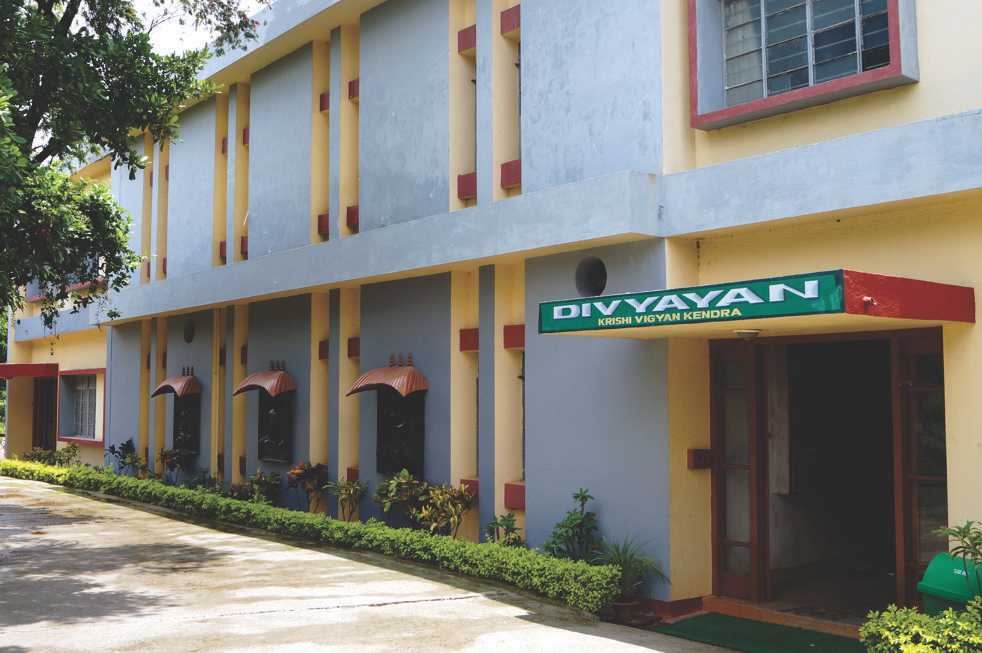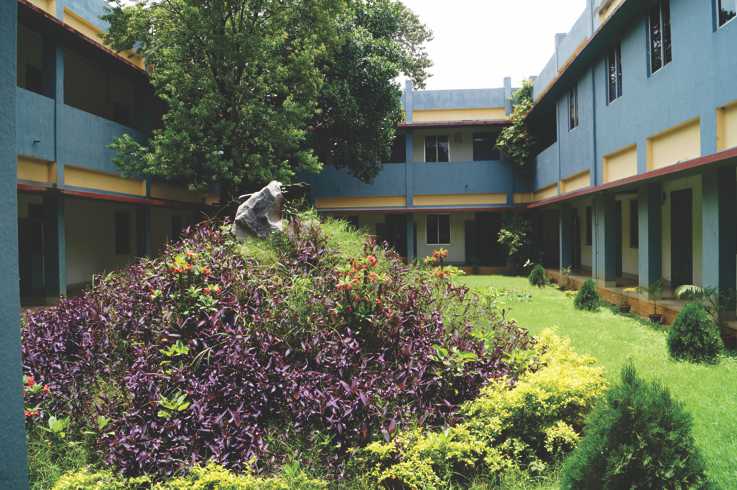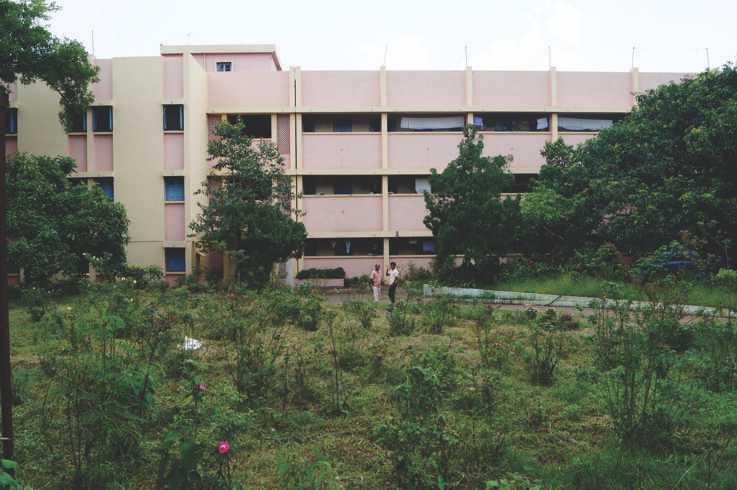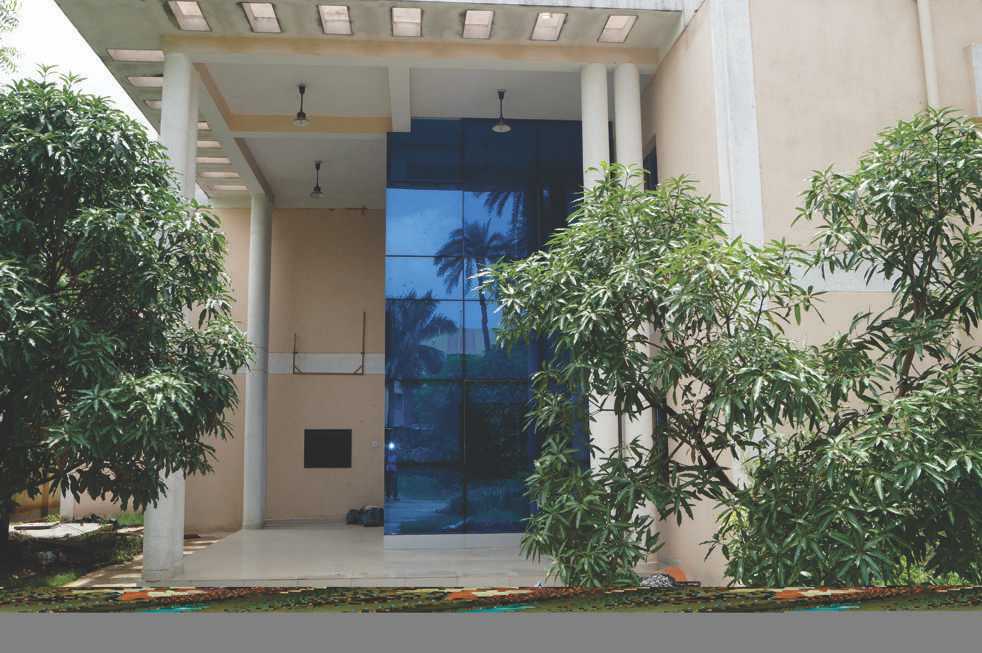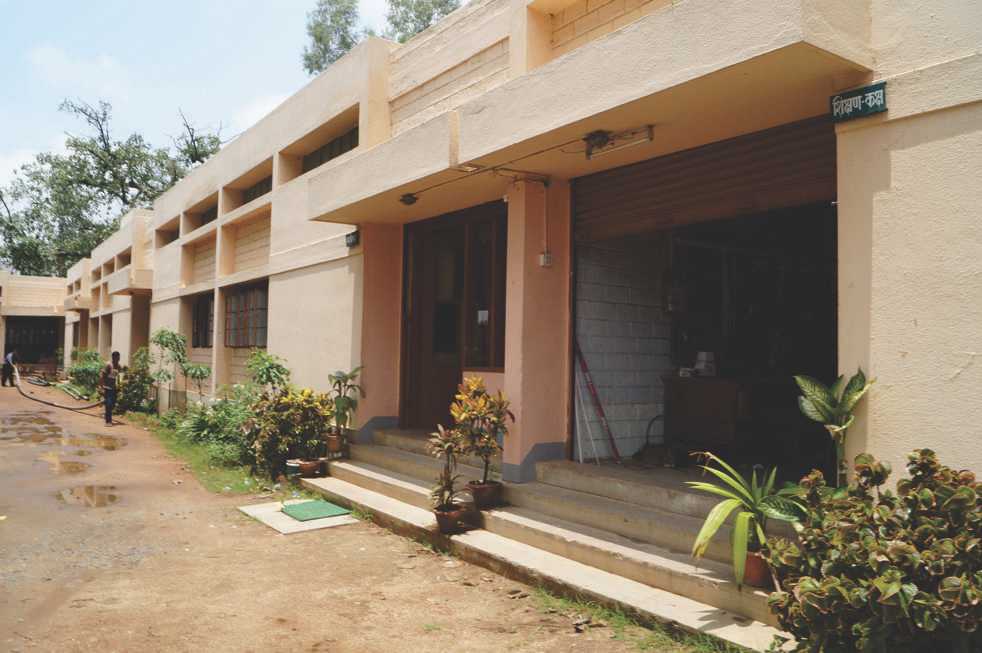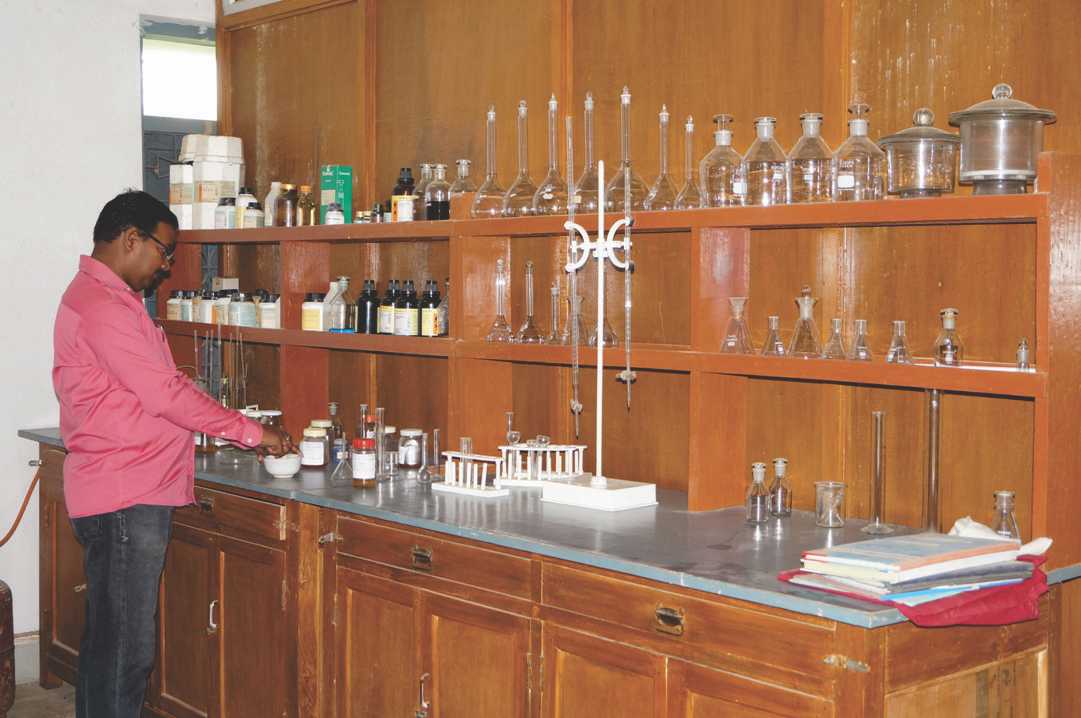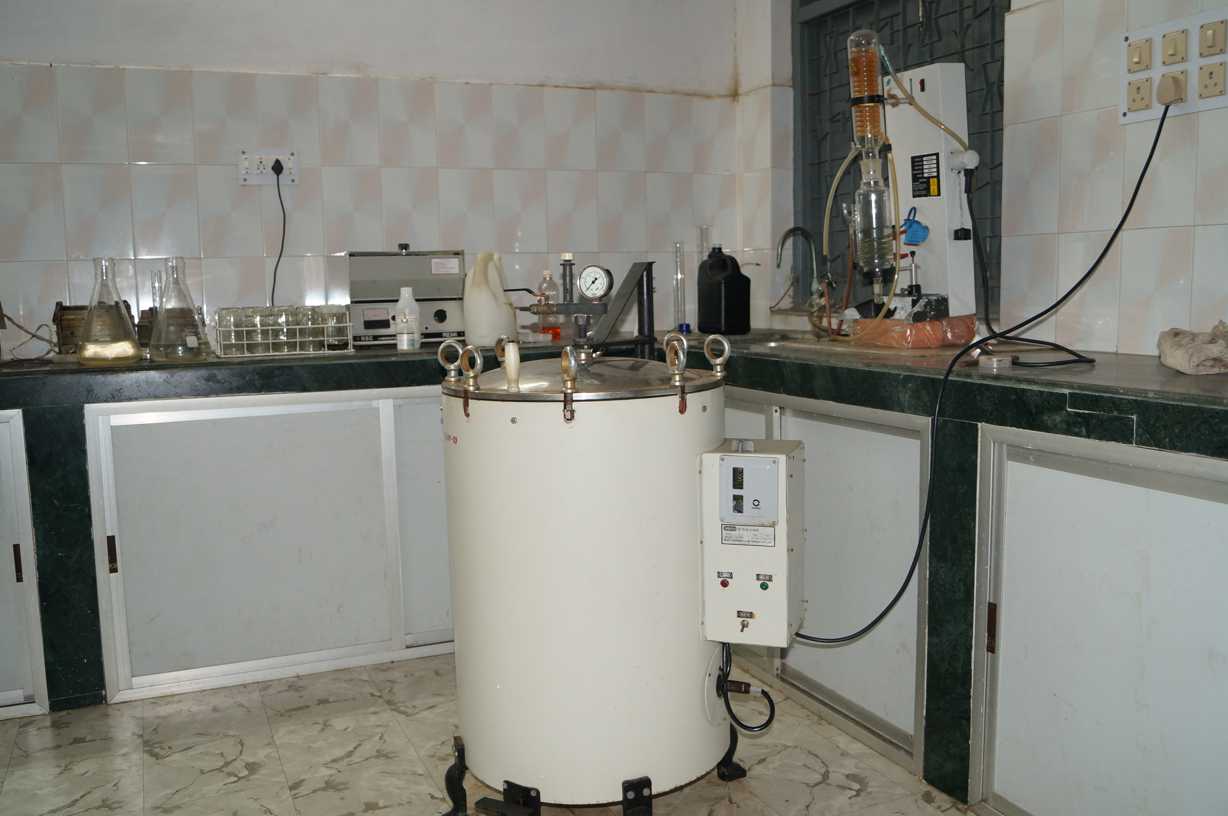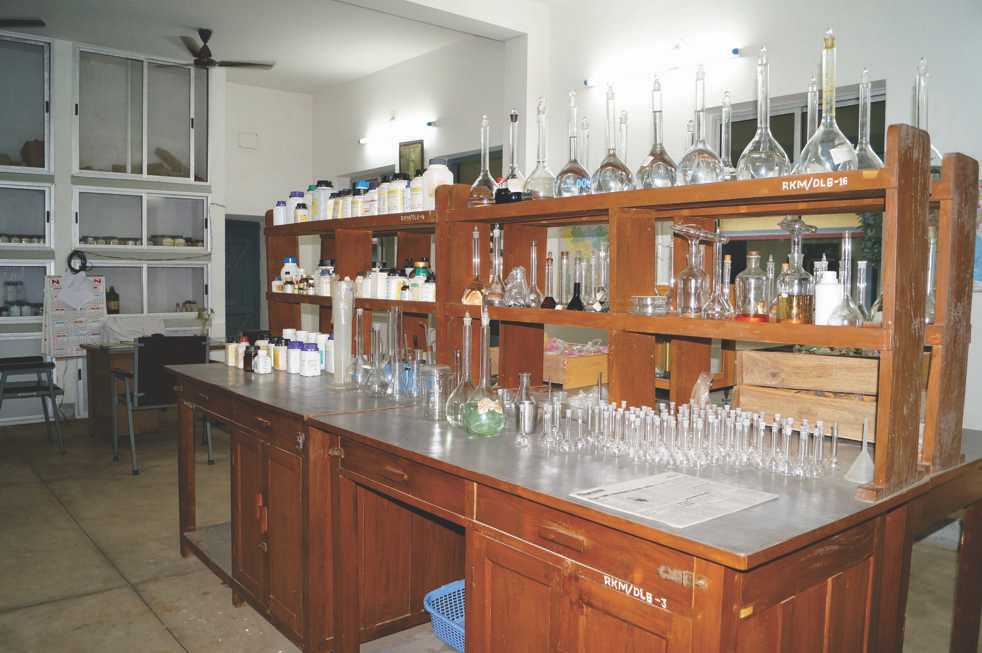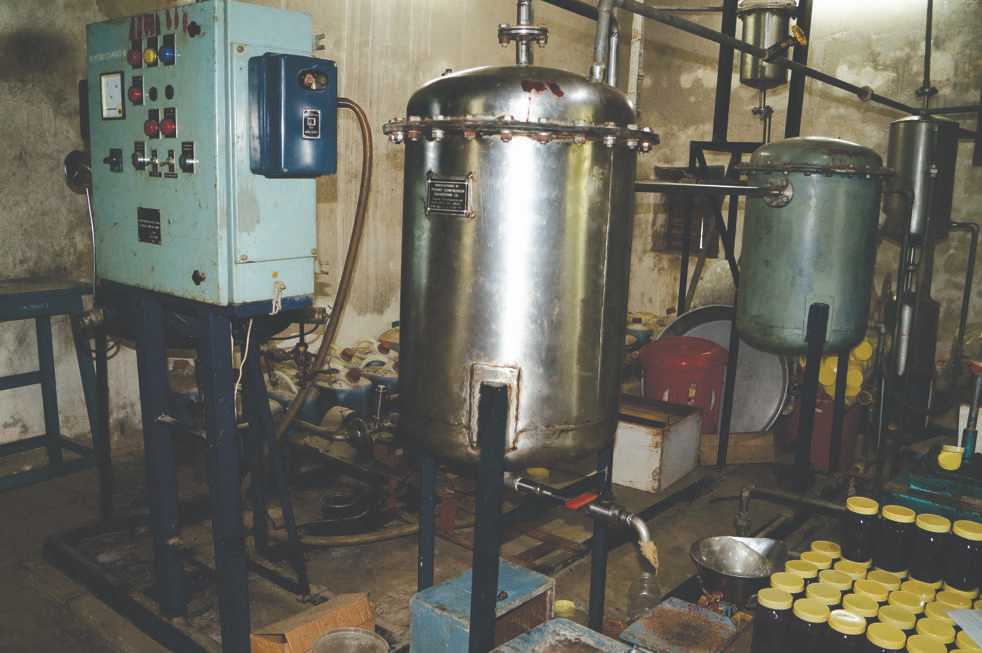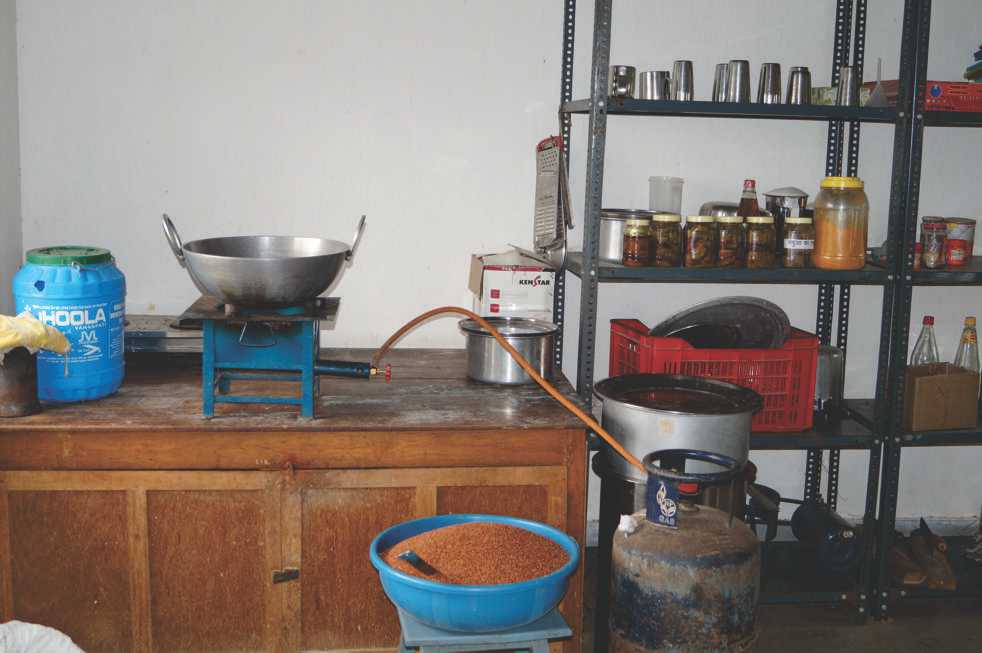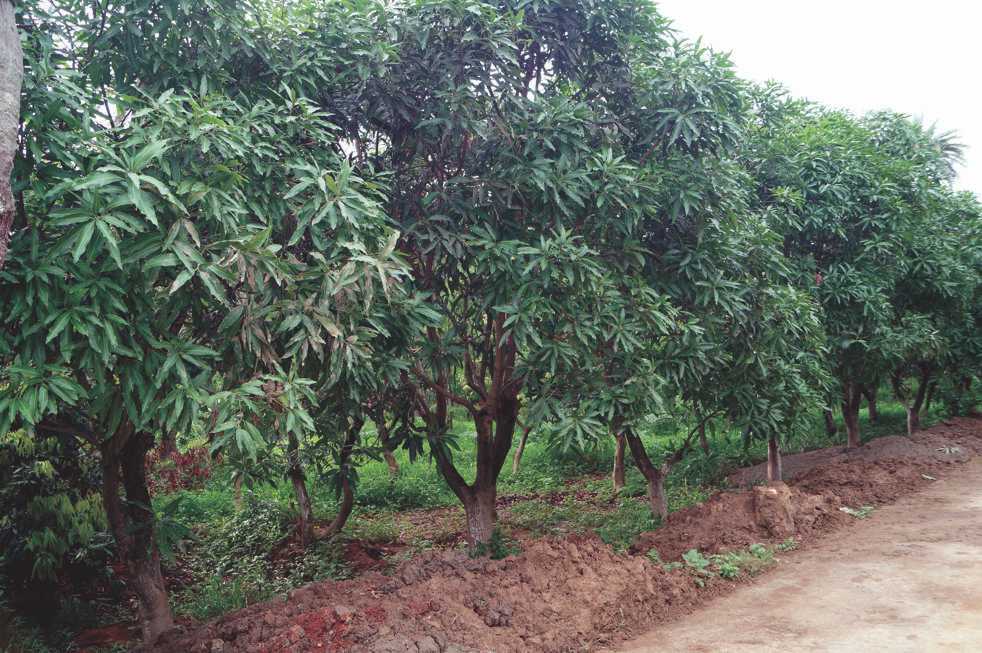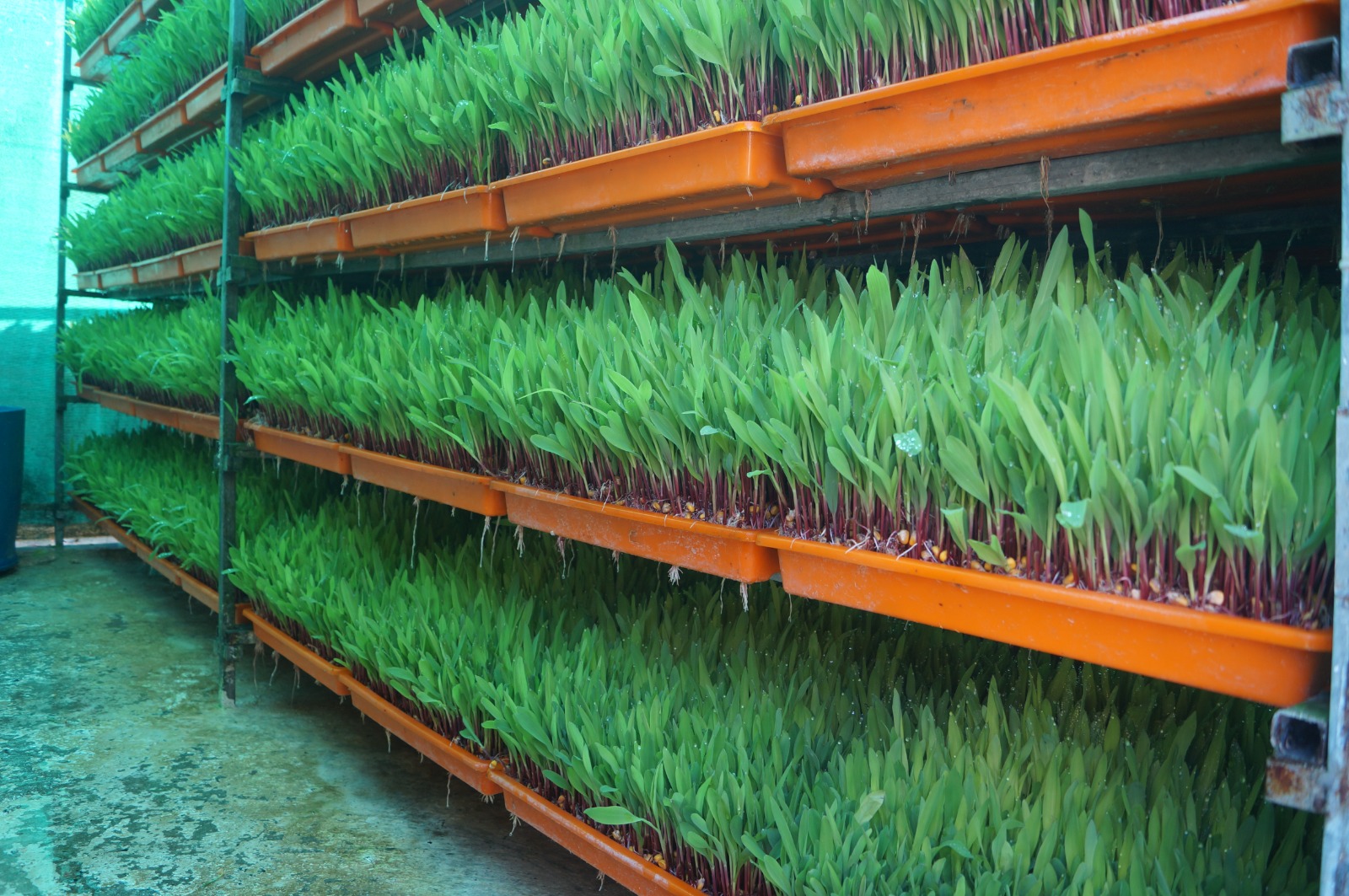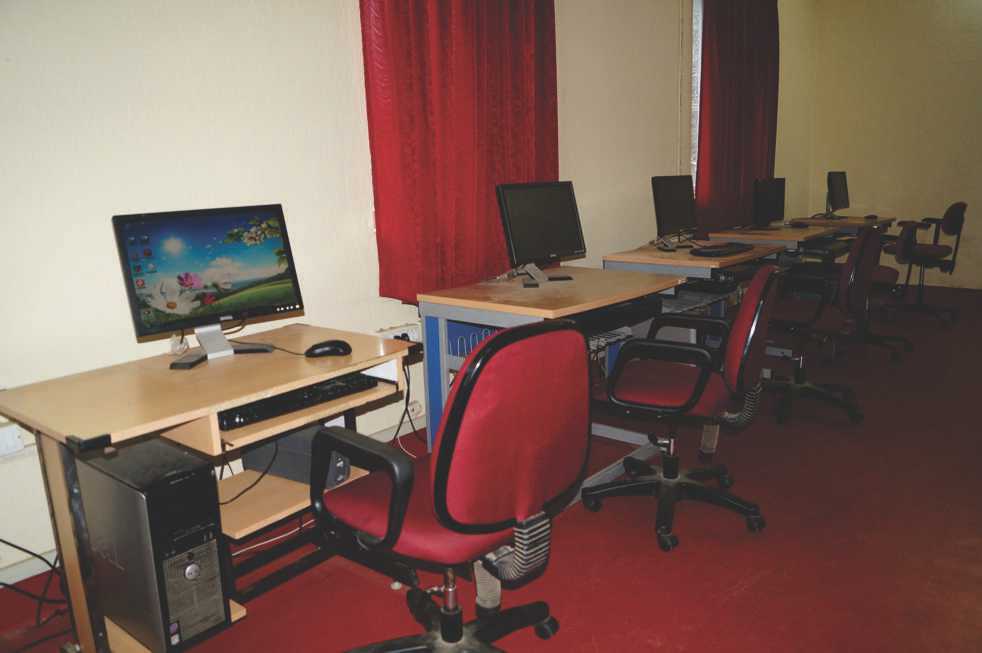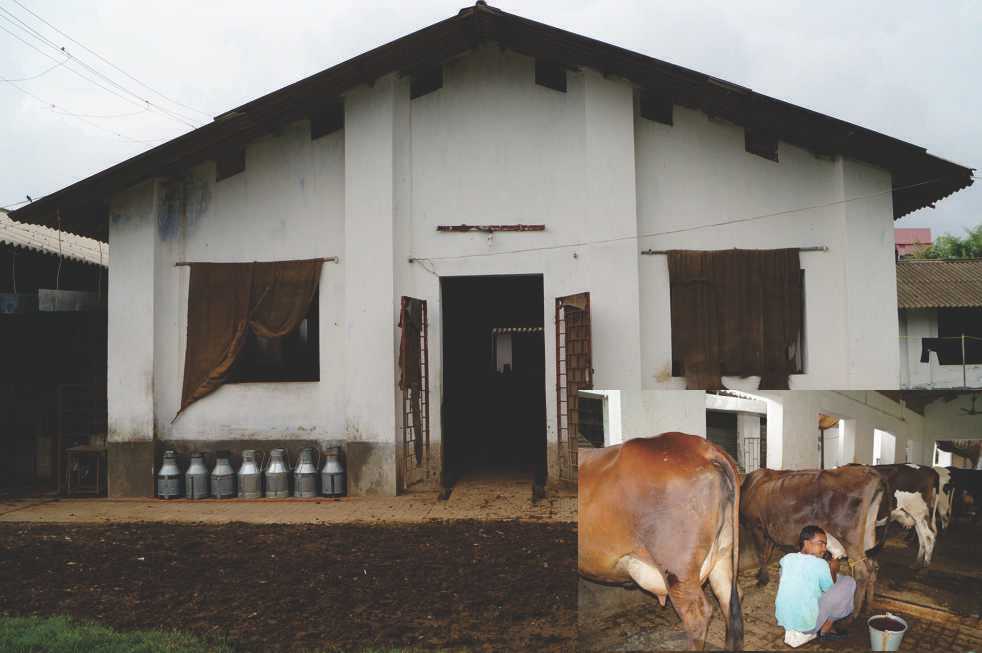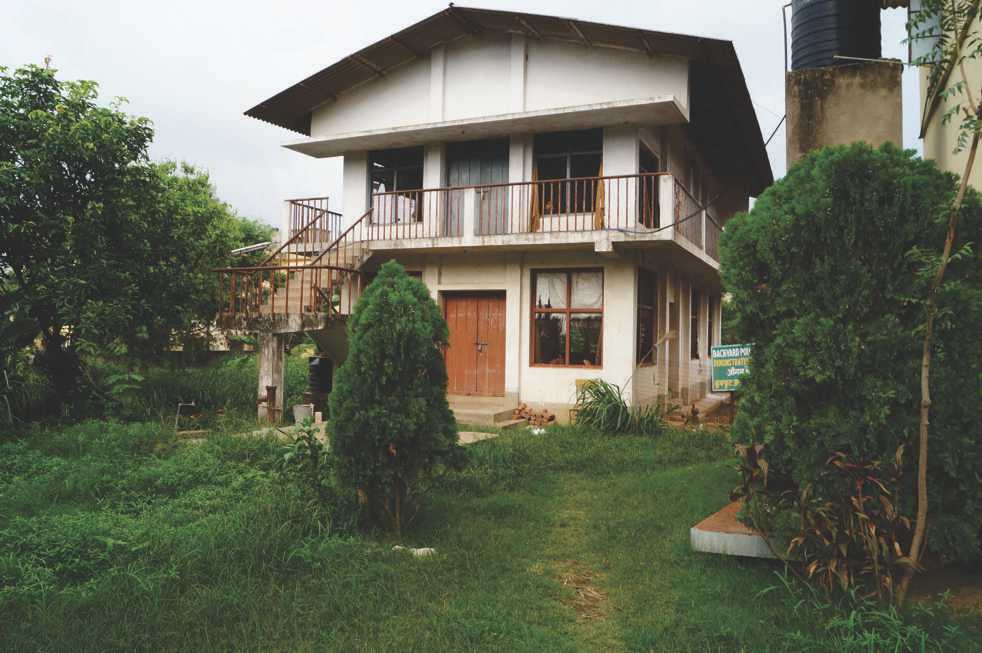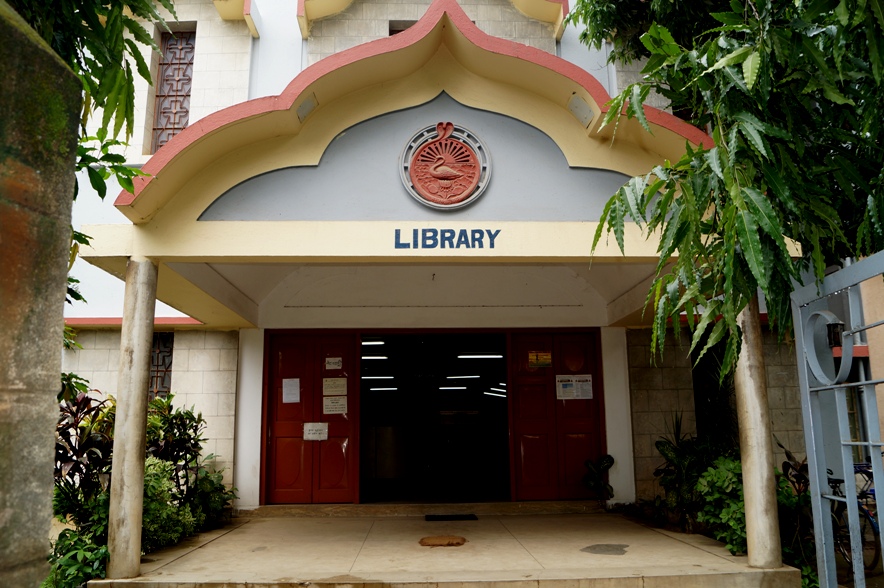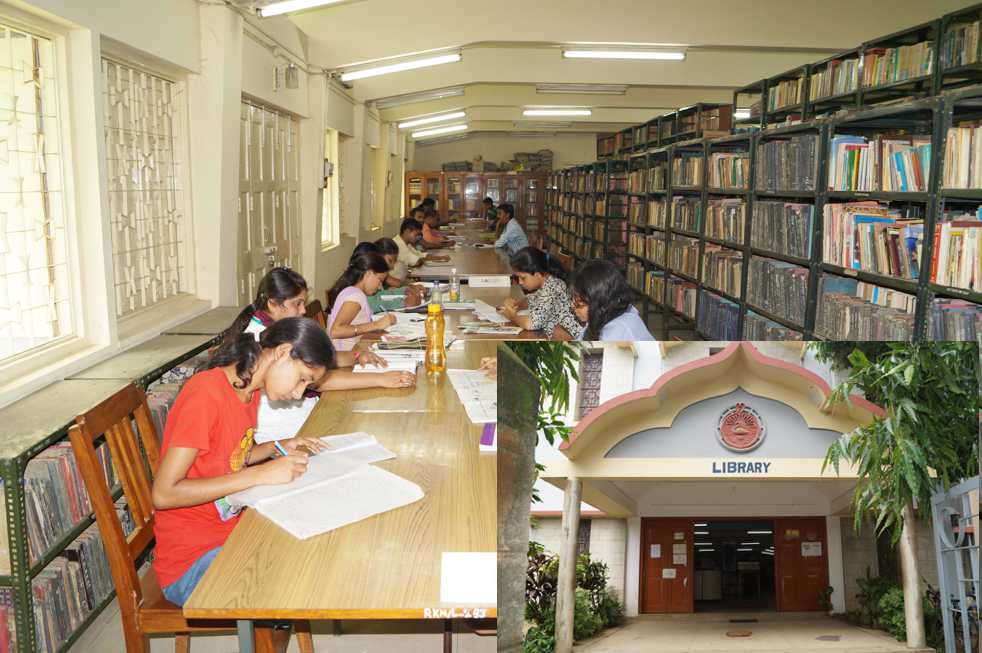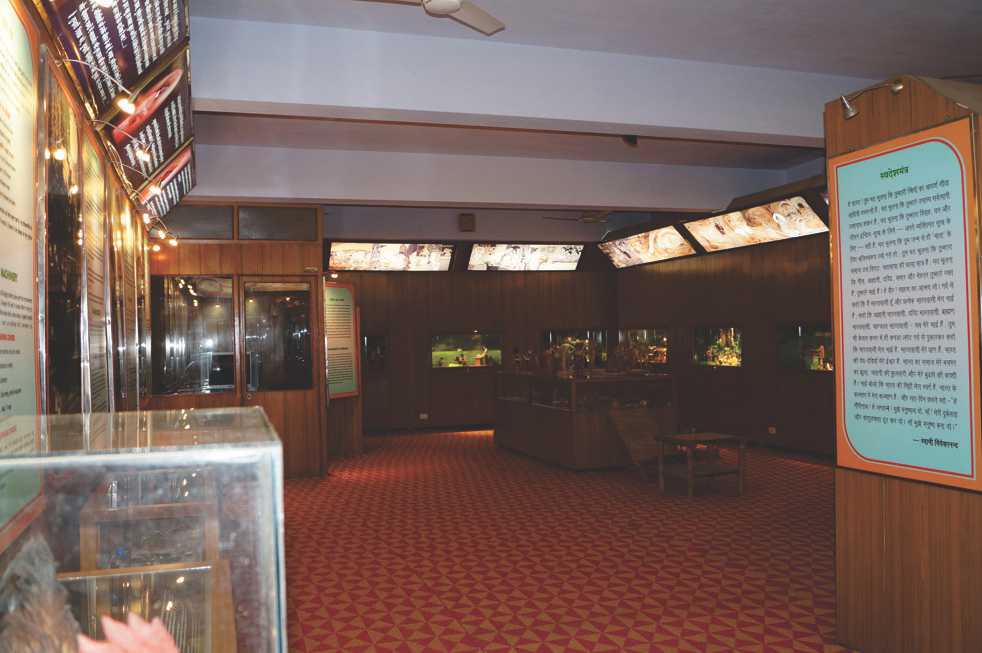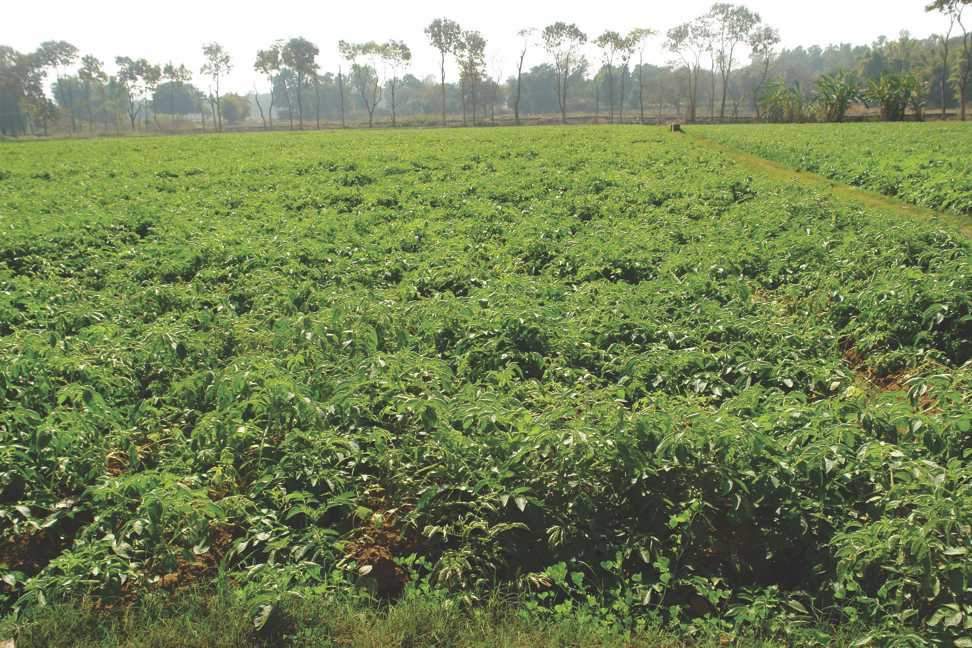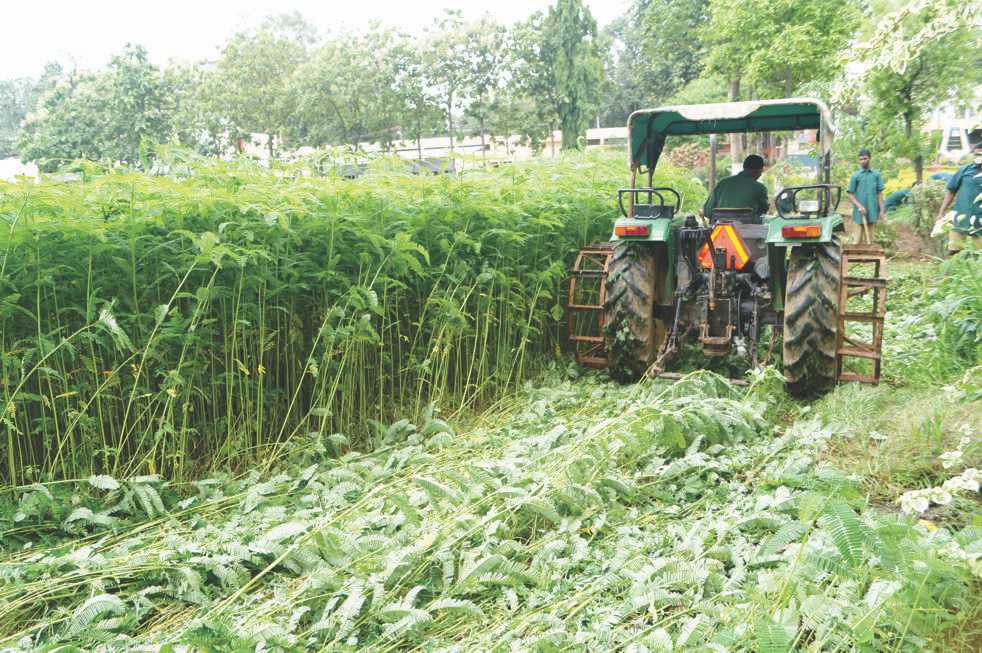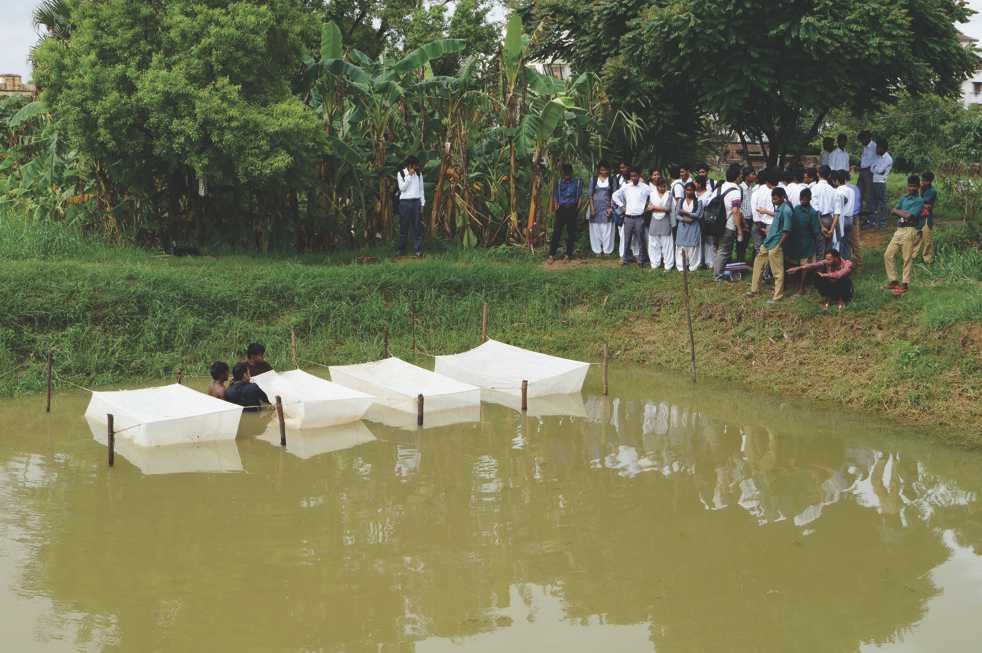Swami Vivekananda had a vision to establish a technical school and gradually a centre in the tribal area of Chhotanagpur where new ways of food production would be discovered. In this context he mentioned that “In Central India, near Hazaribagh and such other districts, plenty of fertile, well-watered, healthy land may even now be easily available. In that region a big plot of land will have to be acquired and on it a big technical school, and gradually factories etc., will have to be started. As new ways of production of food will be discovered, people will begin to settle down in that colony. Then, you can mould them in any shape you like”.
-
- To implement Swami Ji’s vision, Ramakrishna Mission Ashrama Morabadi Ranchi was established on 14th Nov, 1927 by Swami Vishuddhananda Ji who was a direct disciple of Sri Maa Sarda Devi.
- The Ashrama has been working majorly in six areas i.e. economic, social, health, educational, cultural and spiritual development of the rural tribal people.
- To achieve all these objectives Ashrama has established different units and centres at Ranchi and has obtained affiliation/accreditation/grant from respective agencies.
-
- Divyayan Krishi Vigyan Kendra
-
-
- Swami Yuktananda who was the great Karma Yogi founded Divyayan in the year 1969 for imparting training to village youths particularly tribal in scientific agriculture for their self-employment and better living.
- In 1977 Divyayan was recognized as Krishi Vigyan Kendra (KVK) by Indian Council of Agricultural Research (ICAR)and now it comes under Agricultural Technology Application Research Institute (ATARI), Zone IV, Patna, Bihar.
-
-
-
- Divyayan KVK has been working with full staff strength since 1997 with mandate of Technology assessment and demonstration for its application and capacity development.
-
-
-
- Divyayan KVK got the best KVK Award by ICAR, New Delhi at national level for the period 1996-97 and 2016-17. It was adjudged best KVK at Zonal level during the period 2016-17. It was again awarded as the best KVK at national level for the year 2019-20 by the famous Outlook Group.
-
-
-
- Divyayan KVK is having an excellent infrastructure facility in 17 acres’ land for training purpose and multifarious activities. This includes:
- Training Unit
-
-
-
- A training centre was established in 1969 on Swami Vivekananda’s idea i.e. We want that education by which character is formed, strength of mind is increased, the intellect is expanded and by which one can stand on one’s own feet.
-
-
-
- It has three modern classrooms and two basic classrooms with capacity of 50 farmers each.
-
-
-
- Residential vocational trainings, skill development trainings and short duration capacity-building trainings conducted round the year for rural youth, farmers & farm women and extension personnel in agriculture and allied sectors.
-
-
-
- 5000 farmers and 350-500 extension personnel are trained in agriculture and allied sectors every year.
-
-
- Natural/Organic Farming Unit
-
-
- This unit was established in the year 2014 to achieve the objective of “Healthy Soil- Healthy Crop-Healthy Society”.
-
-
-
- Low cost local resource based organic farming technologies has been developed actualizing Swami Ji’s vision, “New means of Food Production should be come first and foremost goal”.
-
-
-
- A production plant having capacity to produce 1600 litre/day of liquid organic manure like Jeevamrit is established in the campus.
-
-
-
- Divyayan KVK has been cultivating the crops using organic inputs only and maintaining the KVK campus by organic means only.
-
-
-
- This work is not limited to converting the premises of Krishi Vigyan Kendra into organic, but this work is also being done in various villages and at present a total of 13 villages have been completely converted into organic villages.
-
-
- Soil Testing Unit
-
-
- This unit has facility to test soil specially pH, EC, OC, N, P, K and micro nutrients of approx. 5000 soil samples per year.
-
-
-
- It provides free of cost soil testing service to farmers of the district.
-
-
- Dairy Unit (Gokul Dham)
-
-
- This unit consist of 100 cattle including cross breed as well as Indigenous breed like Sahiwal and Red Sindhi.
-
-
-
- Approx. 90000 litres of milk is being produced per year by the dairy unit.
-
-
-
- The by-product of dairy is fully utilized in Bio gas plant and natural farming.
-
-
- Orchard based Poultry & Duckery Unit
-
-
- This unit has the credit to develop very famous cross breed of poultry bird namely Divyayan Red in 1982.
-
-
-
- Divyayan Khaki is a cross breed duck developed by Divyayan is also becoming popular in villages.
-
-
-
- This unit contains poultry birds like Divyayan red, Broiler, Kadaknath, Kaveri, Sonali and duck breed like Khaki Campbell and Vigova Super.
-
-
-
- Every year unit sells 75000-100000 birds.
-
-
- Honey Production Unit
-
-
- It has good processing unit with capacity of 2 quintals per day (8 hrs.).
-
-
-
- This unit sells 700-1000 Quintal FSSAI licensed honey of Karanj, Mix fruit, Litchi and Ankol every year.
-
-
-
- Divyayan KVK has promoted this enterprise in villages and established first FPO in beekeeping in the year 2016 in the state.
-
-
- Seed Production Unit
-
-
- Swami Vivekananda said, ‘Don’t go and preach religion to a hungry man. Feed him first. His religion, for the time being, is food.’
-
-
-
- To follow Swami Ji’s vision and to become food self-sufficient viable seed supply system or unit has been established for multiplication and timely distribution of the seeds.
-
-
-
- This unit has 25 ha area under seed production in Kharif, Rabi and Zaid season.
-
-
-
- 500-800 quintals quality seeds of major crops like paddy, wheat, pulses, oilseeds, potato, turmeric, pea and elephant foot yam is produced every year.
-
-
-
- This unit has been conducting farmer’s participatory seed production program in villages and producing approx. 500 quintals seeds per year.
-
-
-
- It has the credit for revival of two indigenous scented rice varieties Bhutku and TulsiMukul and producing quality seeds of these varieties since 2019 for farmers.
- Food Processing Unit
-
-
-
- This unit works specially on millet processing and 35000 to 40000 nutri laddu from finger millet is produced every year.
-
-
-
- This unit develops, assesses and refines technologies for production of value added products and trains farm women in income generation activities and also ensures nutritional security for them.
-
-
-
- The unit has been producing cereal mix, ragi flour, pickles, bari etc. and selling it with FSSAI licence.
-
-
- Vermi-compost Unit
-
-
- The KVK has permanent structure for vermicompost production.
-
-
-
- The unit produces 6000kg of vermicompost and 250 kg earthworm per year.
-
-
- Mushroom unit
-
-
- This unit consists of one sophisticated laboratory for spawn production and one mushroom production chamber.
-
-
-
- Unit produces 10000 packets of spawn and approx. 500 kg mushroomannually.
-
-
- Tissue Culture Laboratory
-
-
- A well-equipped tissue culture lab was established in the year 2010 under RKVY scheme.
-
-
-
- It is mainly producing tissue cultured banana plants var. G-10, asparagus etc.
-
-
-
- It provides facility of dissertation work of outside students of M.Sc. and B.Sc.
-
-
- Farm Implements Unit / Workshop
-
-
- This unit is comprised of farm machinery, implements and equipment for reducing drudgery and facilitating timeliness in agricultural operations.
-
-
-
- Divyayan KVK has been procuring farm implements and promoting&demonstrating the technology on different crops in KVK operational areas to sensitize farmers in farm mechanization and precision agriculture.
-
-
- Fruit Orchard
-
-
- It has 6-hectare area under production of fruit and quality planting material of mango, guava, litchi, lemon, papaya and vegetables.
-
-
-
- 70000 to 100000 seedlings and saplings are produced by this unit yearly.
-
-
- Nutri-Garden
-
-
- A demonstration unit of nutri-garden is established in 1 decimal area to provide easy and affordable access to locally produced fruits, vegetables, medicinal plants and herbs.
-
-
-
- It plays an important role in enhancing dietary diversity by providing key micronutrients through local fruits and vegetables.
-
-
-
- It has helped in reducing external dependency and is makingfarm communities independentfor their nutritional security.
-
-
- Vegetable production unit
-
-
- The unit is being used to demonstrate latest technologies of vegetable production like natural farming, drip with bio mulching, low-cost poly tunnel, shade net, multi-tier farming, vertical garden etc.
-
-
-
- Organic vegetables are grown and sold throughout the year through sale counter established in the KVK campus.
-
-
- Hydroponic unit
-
-
- It is a method of growing plants without soil.
-
-
-
- A multi-tier hydroponic unit is established in March 2022 especially for maize production which is used as green fodder in dairy unit.
-
-
- Azolla Production Unit
-
-
- A multi-tier demonstration unit of azolla production was established in KVK under ASPEE Foundation project in 2022.
-
-
-
- Azolla an aquatic fern is used as a bio fertilizer in paddy field and as a protein supplementation in dairy, poultry and duck farming.
-
-
- KVK Instructional Farm
-
-
- Two farms namely Getalsud and Maheshpur are situated in Angara Block of Ranchi district 35 kilometres away from main KVK campus.
-
-
-
- The area under each farm is 70 acres comprising of forest land and cultivable land.
-
-
-
- These farm consist of goat breeding unit of Black Bengal, mother orchard for sapling production, seed production field,NHB accredited nursery, duck cum poultry unit, dairy unit and demonstration unit of lac production and sericulture.
-
-
- Technical Museum
-
-
- The museum was established on 11 December 2006 and inaugurated by Hon’ble Chief Minister of Jharkhand Sri MadhuKoda.
-
-
-
- This museum is a glimpse of all activities of Ashrama for development of rural and tribal areas of Jharkhand State.
-
-
-
- It has collection of scientific models and display of technology related to agricultural and allied sector.
-
-
- Conference Room
-
-
- It was established in 2009-10 for conducting meetings, workshop, seminars and other programme.
-
-
-
- It has capacity of 50-70 persons.
-
-
- Hostel
-
-
- The Hostel has the capacity to accommodate 250 trainees at a time which facilitates the centre to organize residential training programmes from time to time.
-
-
- Water Harvesting structures
-
-
- Divyayan KVK has 8 ponds, 11 wells and 7 dobhas. 3 ponds, 7 wells and 7 dobhasare situated in main campus and five ponds and 4 wells in instructional farms.
-
-
-
- A well-established rain water harvesting system is functional from the past 10Years.
-
-
-
- The main purpose of these water harvesting structures is to harvest every drop of rain water in order to increase the ground water level and to recharge bore well.
-
-
- Solar system
-
-
- Solar grid (on grid 103.96 KW and off grid 25 KW) with roof top solar panel is established in the campus for production of green energy.
-
-
-
- Ramakrishna Mission Vivekananda Educational and Research Institute
-
-
-
- The institute was established on 4th July 2005 under section 3 of University Grant Commission Act,1956.
-
-
-
- Programmes offered by this institutes are 5 years Integrated M.Sc. in ARTD, 2 years M.Sc. in ARTD & RDM, 4 years B.Sc. in agriculture, PhD in ARTD, 3 years B.Sc. in vocational science, 1year diploma in organic farming and 1year PG Diploma in Rural development.
-
-
-
- More than 550 students are studying in this institute in a year.
-
-
-
- This institute provides 100 % placement to pass out students.
-
-
-
- National Assessment and Accreditation Council (NAAC) has given highest rank A++ to this institute in 2019.
-
-
- National Institute of Open School (NIOS)
-
-
- It was started in the year 2001 with a motto “to educate every rural youth”.
-
-
-
- This centre provides secondary and senior secondary courses especially for school dropouts rural youth along with multi skilled long duration vocational training free of cost along with value education.
-
-
- NSDC Training Centre
-
-
- This centre was established in 2023 at Divyayan Campus whichaims at vocational training and certification of rural youth for a better livelihood and respect in the society.
-
-
-
- This centre offers three-monthskill development training on solar PV installer-electrical, carpentry, welding designing, data entry operator and tally & GST accounting at free of cost.
-
-
- Peerless Skill Academy Training Centre
-
-
- It was started in 2021.
-
-
-
- Centre offers six month courses on AC technician, Data entry operator, Desk top publication, Electrical & domestic solutions, Solar & LED technician, Welding designing and Yoga instructor.
-
-
- Charitable Dispensary
-
-
- Ashrama has been rendering health care service through charitable and mobile dispensary and both the units have a pool of 12 specialist doctors.
-
-
-
- The charitable dispensary was established in 1927 in the Ashrama campus, mainly caters to the needs of the poor and other needy people of Ranchi city.
-
-
-
- Approx. 80000 patients visit the charitable dispensary every year and 11000 patients are treated by mobile dispensary every year.
-
-
-
- This unit also provides eye care service to the rural people and school children also. 5000- 6000 patients and 3000-4000 children treated during eye camp per year.
-
-
- Public Library
-
-
- Library was started in 1927 by Ashrama in 4000 square feet area.
-
-
-
- It has collection of 23655 books for all ages.
-
-
-
- It is a unique and only free public library in this area.
-
-
-
- Approx. 40000 readers visited library every year.
-
-
- Audio Visual Unit and Mobile Library
-
-
- This unit has a fully equipped vehicle with audio visual aids like Television, DVD/CD players, multimedia projector, CDs and DVDs.
-
-
-
- It moves extensively in the villages to conduct shows on various aspects of rural development, agricultural production and spirituality.
- Every year approx. 100 shows are conducted in the villages and 6000 beneficiaries are benefitted.
-
Updated on 17th July 2024
